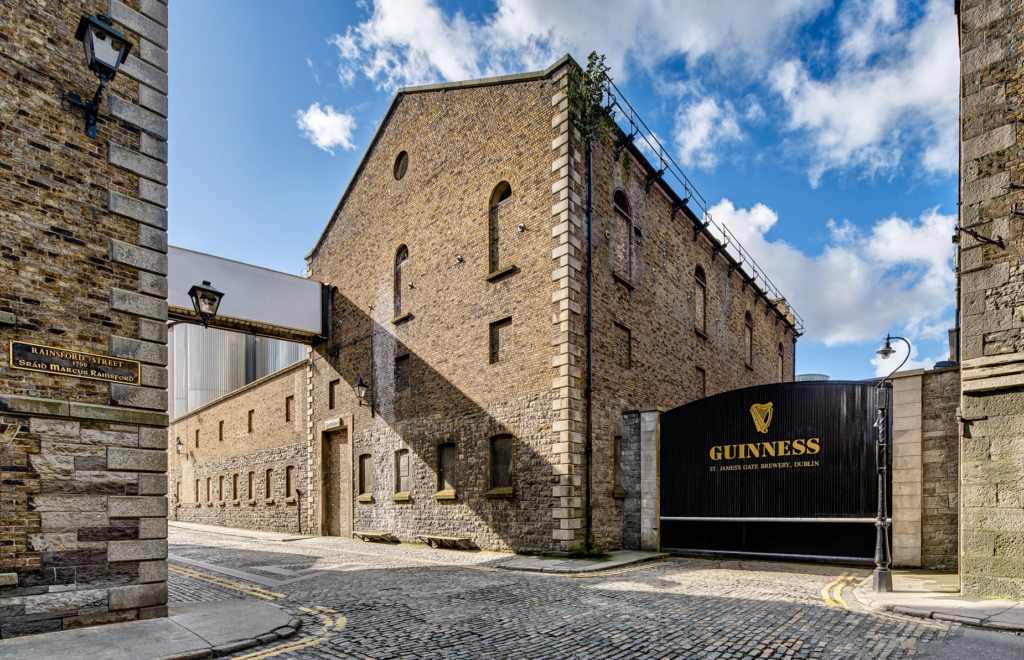DIAGEO has announced plans to decarbonise its Guinness brewery in Dublin’s St James's Gate.
The site, which has been brewing Guinness for 264 years, will get an environmental overhaul under the plans, which are set to accelerate Diageo’s net zero carbon goal by transforming both energy and water use at the historic brewery.
They include an improvement in water use efficiency and a reduction in the water used to brew Guinness by 30% and once complete the project will make the site one of the most efficient breweries in the world.
Taoiseach Simon Harris has welcomed Diageo’s plans.
“Industry is a key pillar of national and global efforts to address climate change, and it is welcome and important that Diageo is showing leadership by decarbonising its operations here in its home city,” he said.
 The iconic gates to the Guinness Storehouse in St James's Gate, Dublin
The iconic gates to the Guinness Storehouse in St James's Gate, DublinEnterprise Ireland will provide Government-backed support for the decarbonisation project.
Leo Clancy, who is CEO of the organisation, described Diageo's investment at St. James’s Gate as a “landmark project in Ireland’s decarbonisation landscape”. “Enterprise Ireland is committed to supporting businesses in the transition towards a low-carbon economy while capitalising on the new market opportunities that decarbonisation presents and creating jobs,” he added.
“It is fantastic to see Diageo’s continued investment in the highest sustainability standards in Ireland and we look forward to continuing our long-term partnership with Diageo as it embarks on this industry-leading work.”
The plan is the latest move by Guinness towards futureproofing its business, with the company well-known for its pioneering employment offers - which includes giving free health care, pension, paid holidays, and free meals to its employees for over 200 years.
“St. James’s Gate is an historic location for an iconic brand,” Diageo’s Global CEO, Debra Crew said.
“We’re 260 years into our 9,000-year lease at St. James’s Gate and this investment will ensure that Guinness has an exciting and long-term sustainable future.
"We are proud to lead the way on decarbonisation, both as a major Irish business and as an industry-leading company.”

